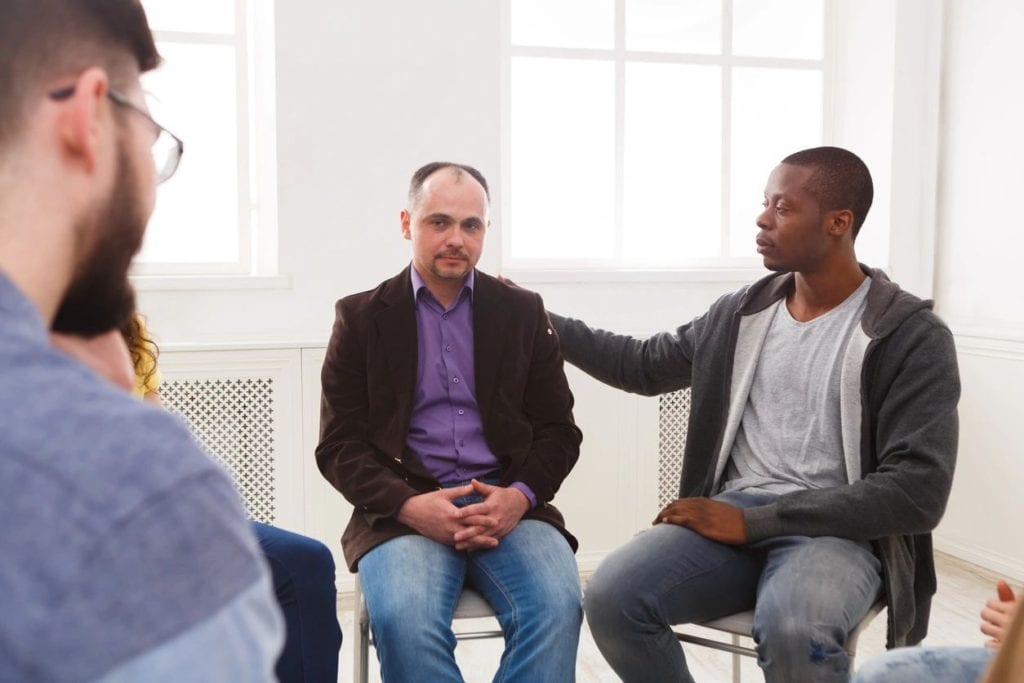
Dealing with addiction isn’t for the faint of heart. For someone to understand how to help a loved one or even themselves, it’s important to have a solid understanding of what addiction treatment really is and what to expect. Our admissions team receives many calls and emails inquiring about treatment, but many people are still unaware of what treatment actually is.
The following scenario will be used to help us explain. In order to comply with HIPAA regulations, the names have been changed and we are using a fictional scenario, but it’s based on very real situations. Below is an example of a person calling in for help for the first time. But, what is help in a situation like this?
Real Life. Real Talk.
Arthur: Ummm hello, my name is Arthur and I’m calling because I need treatment.
Tony: Hello Arthur, my name is Tony and I’d be happy to help. Okay Arthur, tell me a little bit about what’s going on. How can we help you?
Arthur: I’m addicted and need treatment.
Tony: Okay Arthur, what is your drug of choice? When was your last use? How long have you been using? Have you had any recent breaks in the usage cycle? Have you ever received treatment before?
Arthur: I use heroin everyday. I’ve never had treatment, but I need it. I know you guys can help me. I’m looking for outpatient. Do you do that?
Tony: Arthur, I’m definitely going to help you as as best as I can. I just want to make sure you get the right help. Do you mind if I ask you what you know about treatment?
Arthur: Nothing, but I need help.
Treatment Isn’t Magic
It seems that some people think that treatment will miraculously solve all of their day to day issues. Although many of us that work in the field of addiction wish we could just wave a wand and cure people indefinitely, it’s just not realistic.
There’s also a misconception treatment is all about medicine. While some stages of addiction treatment and stabilization of individuals rely on medicine, only the detoxification and stabilization period relies on medicinal remedies. The brunt of treatment is takes place in a group or individual therapy setting conducted by psychologists, social workers, therapists, and behavioral health technicians. Above in the example, Arthur knows he needs treatment, but he doesn’t know what treatment is. How does he know he should be at the outpatient level of care? In fact, outpatient treatment should only take place after an individual has achieved educational and motivational milestones over a period of inpatient or residential treatment.
Addiction treatment uses Evidence Based Practices (EBPs) to help diagnose and address possible behavioral issues, trauma, environmental issues and character defects that might cause the patients to behave in a particularly negative manner. EBPs are tested methods of treatment used by professionals to help modify and avoid certain behavioral patterns and thought processes that cause issues such as substance abuse or chronic relapsing. You can read more about EBPs here on the SAMHSA website.
Work Work Work
Treatment isn’t about what the staff at the treatment facility can do for an individual. Rather, it’s mainly about how to take what is learned in treatment and apply that to reality after treatment. Treatment itself requires a lot of hard work and self assessment. In order to solve any problem, one has to be educated on the subject matter. That is why there is such a large emphasis on the education of the disease of addiction in treatment. Without the proper knowledge and coping tools, it’s almost impossible to achieve lasting results.
During the phone conversation, Arthur says, “I know you guys can help me.” While most treatment centers will be able to help educate and provide coping mechanisms, it’s important for the patient to be motivated to help themselves. An effective treatment facility will try to identify an individual’s motivating factors so that they can help a patient build on those things. Whether it’s family, health, or a combination of both, a part of treatment is to help a patient identify what motivates them to want to break their addiction cycle.
Program Manager, Charlie Truslow, has worked with countless individuals here at 10 Acre Ranch spanning over ten years. Charlie knows first-hand that “what you get out of the program depends on what you put into the program. If you don’t change then nothing else will, and if you’re the same person when you’re done with the program then it’s likely that you’ll use again.”
If you’ve ever had to deal with the heartbreak that is addiction, then you’ve probably heard that the person struggling has to be “ready” before they can receive any meaningful help. But what does it mean to be ready? Being ready means that the individual has come to terms with the fact that they have a problem, they can no longer control it and they can not fix the problem alone. Until an individual is able to recognize this, they will not be ready to truly change.
Recognizing “Ready”
Sometimes it can be difficult to tell if someone is actually ready to do the work. Some may say all the right things and show all the appropriate signs but in fact, they still might not be ready to do the work. The following examples tend to show an individual’s readiness to change for all the right reasons:
1. They’re sick and tired of being sick and tired. (It’s just not fun anymore…)
2. They genuinely express that their life has become unmanageable and want to change it.
3. They’re concerned with what they’ll lose if the continue their habit. (A job, marriage, etc…)
4. They’ve genuinely begun to ask for help to correct the mistakes they’ve made.
5. They’re willing to accept professional help immediately. Not tomorrow, not next week, NOW.

10 Acre Ranch is a non-profit treatment facility that has been serving Southern California families for over 25 years and we’re ready to help you. Do you have questions about being ready?
If so, or if you or a loved one are ready to get help, please don’t wait, give us a call at (877) 228-4679. Our treatment specialists will get you on the right path to a clean and sober lifestyle.






